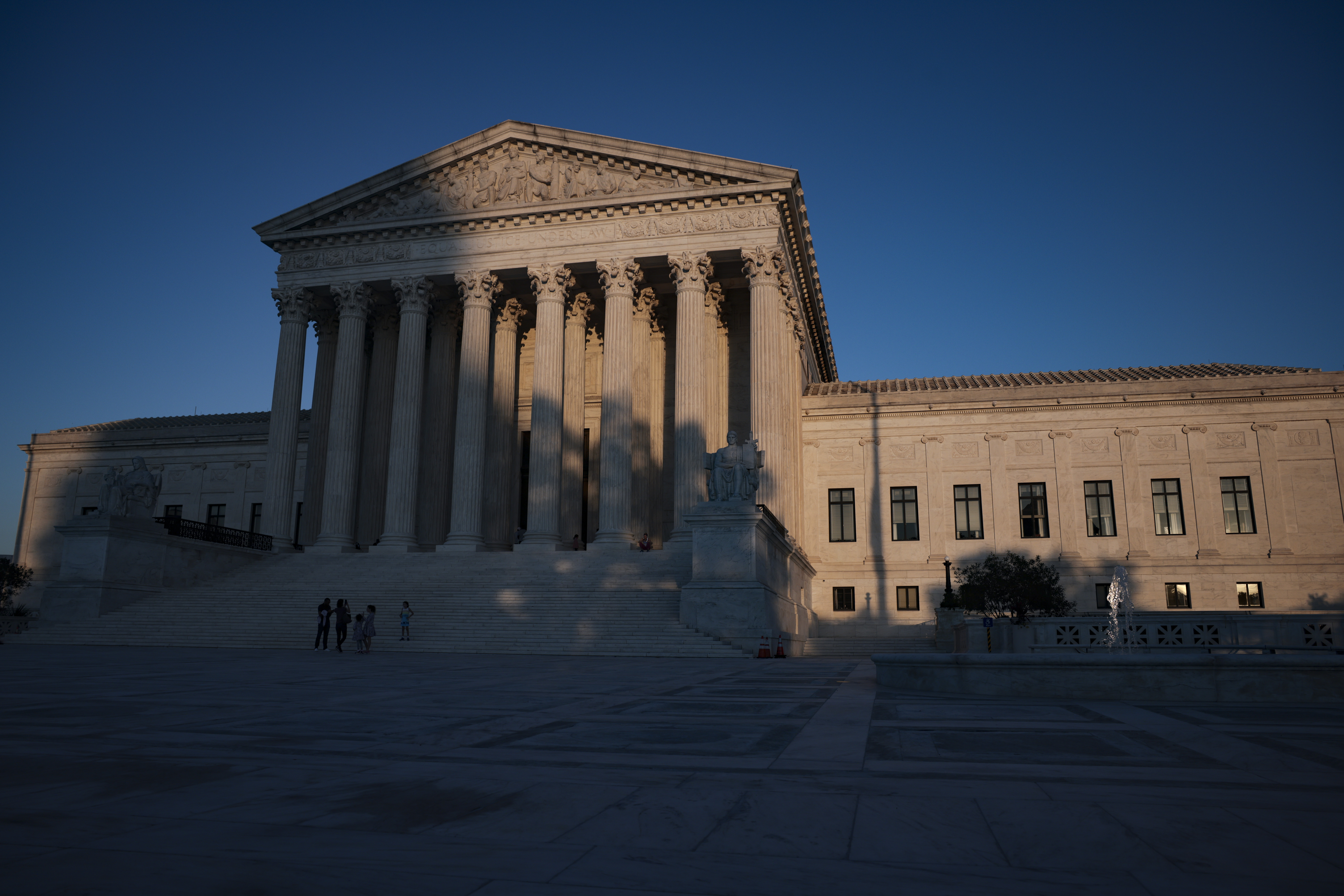Supreme Court to consider case that could block the EPA from limiting greenhouse gases


A free daily email with the biggest news stories of the day – and the best features from TheWeek.com
You are now subscribed
Your newsletter sign-up was successful
The Supreme Court will consider an appeal that could block the Environmental Protection Agency from restricting greenhouse gas output from power plants, reports Bloomberg.
The court will hear from coal mining companies and Republican-led states that want to pare back the EPA's authority to curb emissions. Depending how the court rules, President Biden's administration could be prevented from enacting climate change measures working toward its pledge to reduce U.S. emissions in half by the end of this decade.
As Bloomberg writes, critics have argued the EPA has overstepped its bounds in establishing new rules around greenhouse gas emissions. Even so, the decision by the Supreme Court to hear the appeal came as a "big surprise," Jeff Holmstead, a former EPA assistant administrator, told Bloomberg. The ruling will have "massive consequences," predicted a West Virginia-led group of 18 states, and could force "dramatic changes" in the regulation and production of U.S. energy.
The Week
Escape your echo chamber. Get the facts behind the news, plus analysis from multiple perspectives.

Sign up for The Week's Free Newsletters
From our morning news briefing to a weekly Good News Newsletter, get the best of The Week delivered directly to your inbox.
From our morning news briefing to a weekly Good News Newsletter, get the best of The Week delivered directly to your inbox.
A ruling in favor of the mining companies would not only keep the EPA from regulating emissions, but would also block Congress from delegating that power to the agency, writes the University of Texas School of Law's Steve Vladeck. In the wake of the court's decision to take this case, energy reporter David Roberts predicted "SCOTUS [will] gut EPA authority" in several ways over the next few years. "It will radically constrain Biden's ability to reduce carbon," wrote Roberts, and "there's nothing he (or we) can do about it." In similarly dire terms, Reason's Jonathan Adler wrote: "Whichever way the Court goes, this will undoubtedly be the most important environmental law case on the Court's docket this term, and could well become one of the most significant environmental law cases of all time."
EPA Administrator Michael Regan said the administration is "very optimistic that EPA does have the appropriate statutory authority to reduce CO2 emissions from coal plants." Read more at Bloomberg.
A free daily email with the biggest news stories of the day – and the best features from TheWeek.com
Summer Meza has worked at The Week since 2018, serving as a staff writer, a news writer and currently the deputy editor. As a proud news generalist, she edits everything from political punditry and science news to personal finance advice and film reviews. Summer has previously written for Newsweek and the Seattle Post-Intelligencer, covering national politics, transportation and the cannabis industry.
-
 The Olympic timekeepers keeping the Games on track
The Olympic timekeepers keeping the Games on trackUnder the Radar Swiss watchmaking giant Omega has been at the finish line of every Olympic Games for nearly 100 years
-
 Will increasing tensions with Iran boil over into war?
Will increasing tensions with Iran boil over into war?Today’s Big Question President Donald Trump has recently been threatening the country
-
 Corruption: The spy sheikh and the president
Corruption: The spy sheikh and the presidentFeature Trump is at the center of another scandal
-
 How climate change is affecting Christmas
How climate change is affecting ChristmasThe Explainer There may be a slim chance of future white Christmases
-
 Blue Origin launches Mars probes in NASA debut
Blue Origin launches Mars probes in NASA debutSpeed Read The New Glenn rocket is carrying small twin spacecraft toward Mars as part of NASA’s Escapade mission
-
 Why scientists are attempting nuclear fusion
Why scientists are attempting nuclear fusionThe Explainer Harnessing the reaction that powers the stars could offer a potentially unlimited source of carbon-free energy, and the race is hotting up
-
 Dinosaurs were thriving before asteroid, study finds
Dinosaurs were thriving before asteroid, study findsSpeed Read The dinosaurs would not have gone extinct if not for the asteroid
-
 Canyons under the Antarctic have deep impacts
Canyons under the Antarctic have deep impactsUnder the radar Submarine canyons could be affecting the climate more than previously thought
-
 SpaceX breaks Starship losing streak in 10th test
SpaceX breaks Starship losing streak in 10th testspeed read The Starship rocket's test flight was largely successful, deploying eight dummy satellites during its hour in space
-
 NASA is moving away from tracking climate change
NASA is moving away from tracking climate changeThe Explainer Climate missions could be going dark
-
 Rabbits with 'horns' sighted across Colorado
Rabbits with 'horns' sighted across Coloradospeed read These creatures are infected with the 'mostly harmless' Shope papilloma virus
